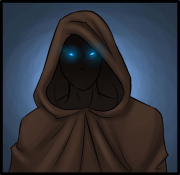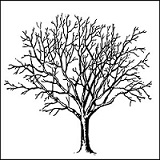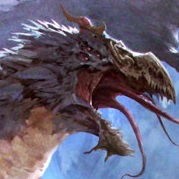 "I have no use for adventures. Nasty, disturbing, and uncomfortable things. Make you late for dinner!" What is The One Ring? The One Ring is a 2011 tabletop RPG based on Tolkien's middle-earth setting. Set in the years between the events of The Hobbit and the Lord of the Rings, the game lets a group of players (and a lore master) adventure in familiar locations and rub shoulders with some of the legends of middle earth, while still allowing you to carve out your own legend. Far from being a mere Donjons and Dragons clone with pipeweed and hairy-footed halflings, the game has several unique mechanics that let it capture the themes and atmosphere of Tolkien's works better than any game before it. What kind of mechanics? In addition to using its own dice system,  the game features a unique combat system largely based on stances(positions in a battle formation essentially), and includes mechanics for ambushes, opening volleys, and being suddenly wounded by vicious Piercing Blows. The game also has mechanics for long journeys and extensive rules for what your characters do in between adventures (the Fellowship phase, as it's called), when they return home to rest, or study with the elves of Rivendell or even ply their trade to save up some money, until the call to action reunites them again. A The One Ring campaign is meant to represent a lifetime of adventures, and time is meant to pass accordingly. One of the most unique and interesting mechanics in the game are the Hope and Shadow scores, which lets characters experience the thematic struggle between good and evil and the failing of the light that is so omnipresent in Tolkien's work. Hope is a resource that lets characters perform especially heroic deeds when spent, or can let them recover from negative effects faster. But it is finite, and should be spent wisely.... Characters who seriously misbehave, experience tragedy or feel the touch of an evil place or presence can gain Shadow points. A character with too high a Shadow score or too low a Hope score can become corrupted, which leads to several negative effects. Corruption that progresses too far unchecked can ultimately lead to madness or service to the will of the enemy... Another important mechanic is the Fellowship score, a pool that players can draw from with consent from other players to regain hope. It represents the comfort characters take in their friendship with each other, another important theme in Tolkien's work. What are the playable races? Elves, Dwarves, Humans and Hobbits, right? Pretty limited... Technically, races aren't a determining factor in The One Ring. Instead, characters are defined by their Cultures. A man of Dale and a man of Gondor lead very different lives and have different aspirations and priorities, and these elements are what shapes them. Though almost every playable culture is composed of a single race (with the optional Hobbits of Bree being a notable exception), not every Elf or Dwarf is the same. Unlike "race" in other tabletops, a character's culture in this game is by far the most important thing about them, determining most of their traits and abilities, their weapon skills, and even what treasures they might receive. They also determine what kind of outlook the character might have, their standard of living, and what callings may be seen as common or unusual in their culture. So far, the following playable cultures are available:
The Rivendell sourcebook also introduced two "advanced" cultures, which are meant to join an already experienced party rather than be used as a starting point, since members of these cultures are assumed to have already lived many adventures and seen many battles.
That's a lot of cultures. What classes are there? Can I be a wizard? Once again, this game doesn't have classes in the traditional sense, but rather Callings. These represent what your hero is adventuring for more than their "job", and doesn't have as much impact on your character as a "class" might. They still grant unique traits, determine favoured skill groups, and perhaps most importantly, decide a character's Shadow Weakness, the path along which his corruption might take him if his shadow score gets too high. You cannot be a wizard, or fighter or cleric for that matter. But especially not a wizard! The callings available to players so far are:
This sounds a bit too simple, are there more mechanics? Oh, a bunch. Traits, attributes, skills, cultural virtues, holdings, standing, Eye awareness, treasure score, enchantments, titles, patrons, the tale of years, combat advantages, healing, status effects, cultural rewards, tests, fatigue, endurance.... the game's pretty involved, but I can't go into it all in this OP. If you're interested in learning more, you should purchase some game books and see for yourself! Where should I start if I want to learn the game? How many books are there, and which ones are important? There have been 12 sourcebooks of various size and importance published for The One Ring, both in print and pdf form, and they are as follows:
What else should I know? Well... I've never actually played a session of The One Ring and so there's probably a lot of information missing from this OP. Hopefully people more knowledgeable than I will help me update it and make it more helpful. 
Lurdiak fucked around with this message at 23:16 on Nov 4, 2017 |
|
|
|
|

|
| # ? Apr 19, 2024 22:00 |
|
Oh hey, we actually played a campaign in this a while back, set in the First Age (houseruling a bunch to make the different cultures fit). The party was travelling around Beleriand, to convince the various great families and factions to contribute men for a great battle against Morgoth. That battle eventually became known as "The Battle of Unnumbered Tears", so you can imagine how well that turned out  . .But anyway, the actual system worked quite nicely. The combat is both really smooth and quite flavourful, which was particularly appreciated by the group as we came fresh from an incredibly crunchy and quite cumbersome system. It lends itself well to fighting according to character and allows for nice cinematic scenes. Our resident dwarf usually fought in the most aggressive stance, slaying orcs by the dozen while their attacks just glanced off of his ridiculous armour. I tried to mirror him one time and got quickly hit and knocked on my rear end for my trouble, but another party member in the defensive backline was able to jump in and take the killing blow meant for me on his shield. It makes for nice memorable moments and gives a fight kind of a natural flow. We also appreciated the concept of fellowship phases. It does feel more natural and narratively appropriate to take care of character advancement when there's actual downtime available for the character to reflect on their experiences and what they've learned there instead of spontaneously powering up while the adventure is still ongoing. We had to adjust it a little to our more constrained and focused campaign, but it still worked quite nicely there. I'm not sure we really did all that much with Hope&Shadow, but I guess that might just be a consequence of the particular setting we used. Moral quandaries become quite simple when you're up against more or less the literal embodiment of evil come to take over your world and subjugate everything in it. The main criticism that we had is that on the whole, it's a really lightweight system, at least compared to what we're used to. Of course, for some groups that will be an advantage, and it does make play remarkably smooth. However, it does also put a fairly significant constraint on just how much you can distinguish and advance your character on the mechanical side of things. It worked alright for our campaign that only spanned a couple of months with a fairly definitive end to it. But if you were to go with a long-term campaign spanning several years/decades with a bunch of separate adventures in it like the game seems to expect, it doesn't seem to offer too many ways to represent that kind of growth mechanically. Though perhaps that's something helped by the supplements, IIRC we only used the core ruleset. Perestroika fucked around with this message at 19:21 on Jul 21, 2017 |
|
|
|
That sounds like a pretty fun campaign setting! Hope and Shadow is just as much about the effects of being exposed to true evil as it is about moral quandaries (seeing the eye of Sauron or a village massacred by orcs can trigger shadow checks, for example), so your GM might've been able to do more. But maybe they didn't feel like focusing too much on that aspect of the game, which is totally fair. And yeah I do agree that the options for character advancement could be beefier and more distinctive. There's very few things in the game that are "spells" or "powers" or anything like that. Everything can sort of feel like just having a bonus on certain rolls, at least in the base game. The Adventurer's Companion makes an effort to remedy that by adding Expanded Masteries, which work a lot like feats in DnD and have their own special dice, and Rivendell's rules for enchanted/cursed treasure and items certainly allow you to stand out with your unique gear. The fellowship phase also gets greatly expanded upon in some of the supplements, allowing you to do things like maintain holdings and craft unique gear (very dwarfy), prepare an heir, increase your reputation, take on a patron... Then there's the rules for having a mount and the various cultural virtues/rewards that the new heroic cultures get.... There's definitely been an effort to expand both starting and leveling player options as the game went along. The game might still seem lean in that department compared to others, but it also provides ample ways to distinguish yourself through roleplaying and flavor, at least in my view.
|
|
|
|
|
How approachable are the materials for people who are more "saw the movies once" than "argued about Elvish typography around the dinner table"? There are a bunch of things about the system that have always interested me, but I worry that to make up adventures that fit in, I'd need to go back and make different life choices as a 12-year-old.
|
|
|
Subjunctive posted:How approachable are the materials for people who are more "saw the movies once" than "argued about Elvish typography around the dinner table"? There are a bunch of things about the system that have always interested me, but I worry that to make up adventures that fit in, I'd need to go back and make different life choices as a 12-year-old. The basic player's guide does a very good job of setting the stage for the world and time period the game takes place in. You're not expected to know what a Valar is, or understand the convoluted history of all elvenkind. You just need to know that it's a world of ancient ruins, untamed lands, and weird monsters, where elves, dwarves, men and hobbits try to make their way. The average character in the game probably knows just as much about the setting and its lore as you do, which is to say not very much.
|
|
|
|
|
Well that sounds interesting then! Thanks!
|
|
|
|
I've tried to play this game a couple of times through PbP here and the system is very interesting to me. The travel and fellowship phases are very neat concepts that set this system apart and it's fairly easy to learn. Like many PbP's, we suffered a lack of momentum that killed the games but I'd love to play it again some time some way.
|
|
|
Epi Lepi posted:I've tried to play this game a couple of times through PbP here and the system is very interesting to me. The travel and fellowship phases are very neat concepts that set this system apart and it's fairly easy to learn. Cubicle 7 claims that their conversions to 5th Edition D&D, Adventures in Middle Earth, have been growing the player base of The One Ring by getting people who only know D&D interested in the game after trying the 5e flavored version. Hopefully that's true, and finding a group to play the game is going to keep getting easier.
|
|
|
|
|
Consider putting the online character generator in the topic? It's really cool! I will note, despite the various cultures sometimes being better at one thing or another, the game really does have a lot of good customization. You can no joke make a pretty drat fierce hobbit warrior type - they're just still going to also be real good at gardening and storytelling, probably, and is very stealthy even when they don't mean to be, and has Opinions about food.
|
|
|
|
"Bilbonan, what is good in life?" "Ooh. Elevensies. And second breakfast. Oh, and afternoon tea! And morning tea..."
|
|
|
ProfessorCirno posted:Consider putting the online character generator in the topic? It's really cool! Done! I should've guessed there'd be one out there. quote:I will note, despite the various cultures sometimes being better at one thing or another, the game really does have a lot of good customization. You can no joke make a pretty drat fierce hobbit warrior type - they're just still going to also be real good at gardening and storytelling, probably, and is very stealthy even when they don't mean to be, and has Opinions about food. Yeah, I got that impression from reading the books. Culture plays a huge role in shaping your character but there's still a lot of room for customization.
|
|
|
|
|
Epi Lepi posted:I've tried to play this game a couple of times through PbP here and the system is very interesting to me. The travel and fellowship phases are very neat concepts that set this system apart and it's fairly easy to learn. Yeah, I just had a TOR online game crap out because of too many drop-outs (even though everyone seemed to be having fun and several players said the system was great). Has anyone tried the expanded combat rules from the Adventurer's Companion? Do they actually work or are they just needless complication? Also, on the subject of the Adventurer's Companion, one of the Masteries really bothers me: Confidence, because it completely refills your Hope when you take it. It just feels like a mandatory pick, especially since the rest of the game is pretty stingy about ways to recover Hope.
|
|
|
Selachian posted:Also, on the subject of the Adventurer's Companion, one of the Masteries really bothers me: Confidence, because it completely refills your Hope when you take it. It just feels like a mandatory pick, especially since the rest of the game is pretty stingy about ways to recover Hope. Wow, I missed that when I was reading the new masteries. That really does seem like bullshit. Even having your current hope score increase by a number matching your increased total would be a huge boon, but having it completely refill? Yeesh.
|
|
|
|
|
Does The One Ring use a round/initiative system for combat like D&D 5e or a narrative kind of system like Dungeon World?
|
|
|
|
Numlock posted:Does The One Ring use a round/initiative system for combat like D&D 5e or a narrative kind of system like Dungeon World? Round/initiative. Although initiative is fairly simple: the heroes always act first, unless they're ambushed or otherwise in a situation where it makes sense the baddies would have the upper hand.
|
|
|
|
Numlock posted:Does The One Ring use a round/initiative system for combat like D&D 5e or a narrative kind of system like Dungeon World? It's based on what a given side in combat is doing. Being in a defensive position or executing a successful ambush gives a side the initiative. There's also stuff like opening volleys with ranged weapons before close combat. It's not free form like Dungeon World, but it's not quite like D&D either.
|
|
|
|
Ok well good to know. My friend and I were looking for a "low fantasy" game to try to start a new game with. Probably then just going to go with the D&D version of it then, more for logistical reasons than anything.
|
|
|
|
Numlock posted:Ok well good to know. My friend and I were looking for a "low fantasy" game to try to start a new game with. dON'T
|
|
|
Numlock posted:Ok well good to know. My friend and I were looking for a "low fantasy" game to try to start a new game with. I'm curious what definition of low fantasy you're operating under where Tolkien qualifies.
|
|
|
|
|
Lurdiak posted:I'm curious what definition of low fantasy you're operating under where Tolkien qualifies. Basicly that players donít have ready access to godlike powers. Like fireballs from their fingertips, waving a hand and wounds knitting themselves together, and powerful magic items lying around every pawnshop, etc... I know descriptors like low fantasy mean different things to different people to the point their useless, which why I put it in quotes.
|
|
|
|
Low fantasy as in you're just a bunch of schmucks hitchhiking and killing mostly ugly schmucks with a few spooky ghosts thrown in This game is dope as hell
|
|
|
This news is a couple days old but I was laid out with Halloween Hangover: Oaths of the Riddermark, a set of 6 adventures taking place in the lands of Rohan, is now available for physical pre-order or PDF purchase. If you pre-order the book, you get the PDF for free! Lurdiak fucked around with this message at 23:17 on Nov 4, 2017 |
|
|
|
|
When my group played this, I (as GM) had issues, but I'll try and summarize my take overall and get some discussion/debate going: The Good - Book is very pretty. - Book knows what it wants to be about : LOTR, edging much closer to the books than the movies, but not so much that it encourages you to ignore the movies. - It doesnít have a lot of petty setting biases: The book explains openly that Tolkien didnít actually fill in a whole lot of world details or sometimes even plot details, so you should feel free to make up your own stuff or even contradict existing lore, since Tolkien himself revised important setting details many times over the years. So it doesn't spend a lot of time enforcing setting dogma on your game. - The game is simple to run when you get over its eccentricities and weird ability score system. - The game makes travel interesting, when in most systems going places is an afterthought. You could apply lessons learned to many other games to make overland movement feel more important and strategic. - I like that your culture matters a lot, and that there are two investment trees for powerful abilities. The Bad: Manual Organization and Writing - The game is not the worst-organized I've ever seen (Black Crusade), but certainly not the best. - The vast majority of the game's rules feel like they could be described in 20 pages. It takes a little longer. - The game has a real problem explaining very basic concepts when they are introduced. It has a really hard time getting to the point when it does explain. The Bad: Basic Mechanics - The die system is incredibly swingy, which would be OK if that served a clear mechanical purpose. Mostly it gives you a lack of control on whatís happening to your character, which you can counter-act by actively using your skills, butÖ - The game is way too wishy-washy on what anything actually does. There is almost no concrete benefit in the RAW (rules as written) to take any skill but [weapon] and Travel. As a result, character sheets become a series of mother-may-I moments waiting for their edge cases. - Travel is tough, but the game is balanced around taking fairly short trips (perhaps going from one end of a region to another). The adventure/module books are organized around what amount to one-off adventures that slowly add up toward something, to the point that large plots are supposed to take decades to resolve. Stop me if you already know what the problem is here: That isnít really what LOTR stories are about. There isnít a section of the source material that doesnít involve an epic backpacking experience from one end of the continent to the other, often with a certain amount of urgency. The game suggests that the basic story arc is something like an event every 1-2 years. Thatís not likely to lead to campaigns that are all that interesting. The Bad: Monsters & Combat - Running combat as a GM is both very boring and needlessly complicated at the same time. There aren't enough monsters, and reading a monster entry correctly requires you to have at least 3 different pages at once (special abilities, monster stat block, monster weapons). Very stupid. - In theory, you have several tactical options for positioning and strategy. In practice, everyone goes all-in every turn, because the mechanics and the monster abilities make playing defensively difficult or impossible, not to mention not productive (contributing damage is critical).
|
|
|
|

|
| # ? Apr 19, 2024 22:00 |
|
The One Ring is on sale at the Bundle of Holding with A basic bundle and a bundle with more recent adventures. There are only a few days left if you are interested.
neaden fucked around with this message at 04:06 on Jan 2, 2018 |
|
|






















